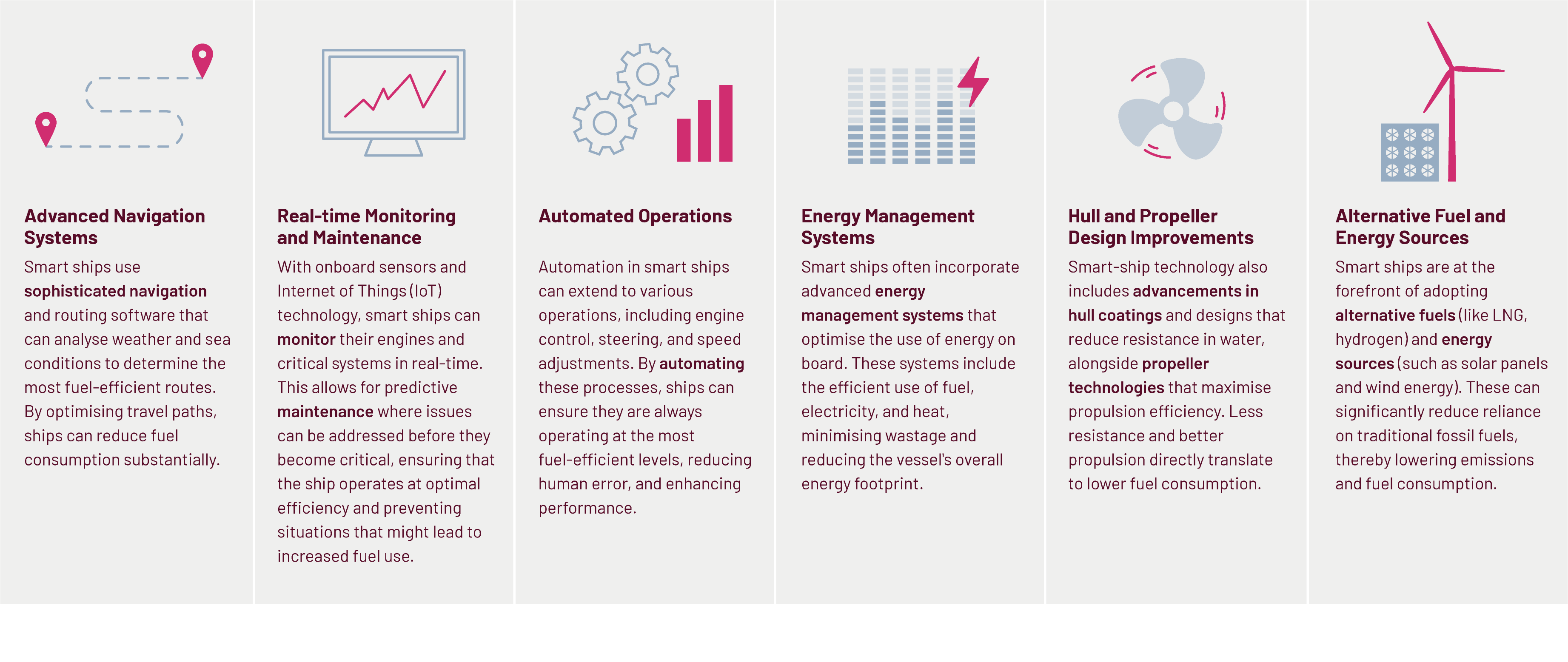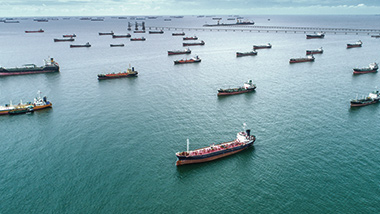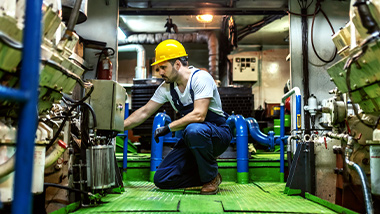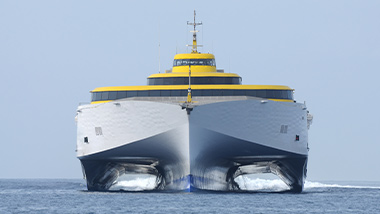By integrating various systems and technologies, ‘smart’ ships not only become more fuel-efficient but also contribute to reducing the shipping industry's carbon footprint.
There are numerous ways in which a ship can become ‘smarter’ in order to reduce fuel consumption. Some of them are listed here:
Advanced Navigation Systems:
Smart ships use sophisticated navigation and routing software that can analyse weather and sea conditions to determine the most fuel-efficient routes. By optimising travel paths, ships can reduce fuel consumption substantially.
Real-time Monitoring and Maintenance:
With onboard sensors and Internet of Things (IoT) technology, smart ships can monitor their engines and critical systems in real-time. This allows for predictive maintenance where issues can be addressed before they become critical, ensuring that the ship operates at optimal efficiency and preventing situations that might lead to increased fuel use.
Automated Operations:
Automation in smart ships can extend to various operations, including engine control, steering, and speed adjustments. By automating these processes, ships can ensure they are always operating at the most fuel-efficient levels, reducing human error, and enhancing performance.
Energy Management Systems:
Smart ships often incorporate advanced energy management systems that optimise the use of energy on board. These systems include the efficient use of fuel, electricity, and heat, minimising wastage and reducing the vessel's overall energy footprint.
Hull and Propeller Design Improvements:
Smart-ship technology also includes advancements in hull coatings and designs that reduce resistance in water, alongside propeller technologies that maximise propulsion efficiency. Less resistance and better propulsion directly translate to lower fuel consumption.
Alternative Fuel and Energy Sources:
Smart ships are at the forefront of adopting alternative fuels (like LNG, hydrogen) and energy sources (such as solar panels and wind energy). These can significantly reduce reliance on traditional fossil fuels, thereby lowering emissions and fuel consumption.





